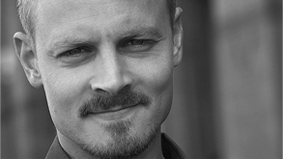Innovation is an oft-used but oft-misunderstood word. Legendary journalist, editor and author Sir Harold Evans gave a lecture at the RSA a few days ago on the ‘spirit’ of innovation – what makes for successful innovation and what we can learn from some of the great innovators – the inventors and the entrepreneurs who took risks, were often met with disdain, but who originated transformational technologies, products and services. He talked about the myth of the lone inventor. The trouble with the ‘Eureka Myth’, as he calls it, is that it
"…causes managers and investors to overestimate the pace of invention and underestimate the fortitude, namely the capital required, to move from the early stages of discovery to a marketable product or service."
Images courtesy Startup Quote
He notes that Edison, perhaps the most prolific innovator in history, had 3000 failed experiments with the incandescent bulb. James Dyson made 5,127 prototypes of his vacuum before he got it right. That’s 5,126 failures (and when he succeeded he couldn’t sell a single one in a british store, yet it is now the largest selling vacuum cleaner by revenue in the US). We’re taught to do things the right way, he says, but if you want to discover something that other people haven’t, you need to do things the wrong way.
The Wright brothers invented flight in 1903, but it took years of dedication and experimentation before they made their first flight. Plenty of other people were trying at the time, but it was two bicycle makers from Ohio who made one of the great breakthroughs that enabled flight (the invention of three-axis control) through an understanding of something that is key to riding a bike – balance.
Sir Harold makes the same point that I’ve made before: "Innovation is not simply invention or discovery, it is invention or discovery brought to use". In other words, innovation is the commercialisation of invention.
Images courtesy Startup Quote.
Invention without innovation is a pastime. Sir Harold spent five years researching the great inventors throughout history, and found that few were versed in any branch of pure science. Instead, the distinct quality amongst all of them seemed to be that they were able to get their hands on the important ideas and turn them into commercial reality. Henry Ford didn’t invent the motor car. But he ignored contemporary conventional thinking and saw something other people didn’t – the need for an affordable car.
So it’s not all about the patent. An MIT study found that patents were a poor representation of the magnitude and impact of the knowledge spilling out of the university. Most faculty members estimated that patents accounted for less than 10% of the knowledge that transfered from their labs.
It can take a long time to develop interesting products and get them right. To quote James Dyson:
"Our society has an instant- gratification thing. We admire instant brilliance, effortless brilliance. I think quite the reverse. You should admire the person who perseveres and slogs through and gets there in the end."
Is genius enough? Clearly not.
You can stream the lecture by clicking on the icon below:
HT for the link.
Image source: DieselDemon
Original Post: http://neilperkin.typepad.com/only_dead_fish/2010/06/the-eureka-myth.html




